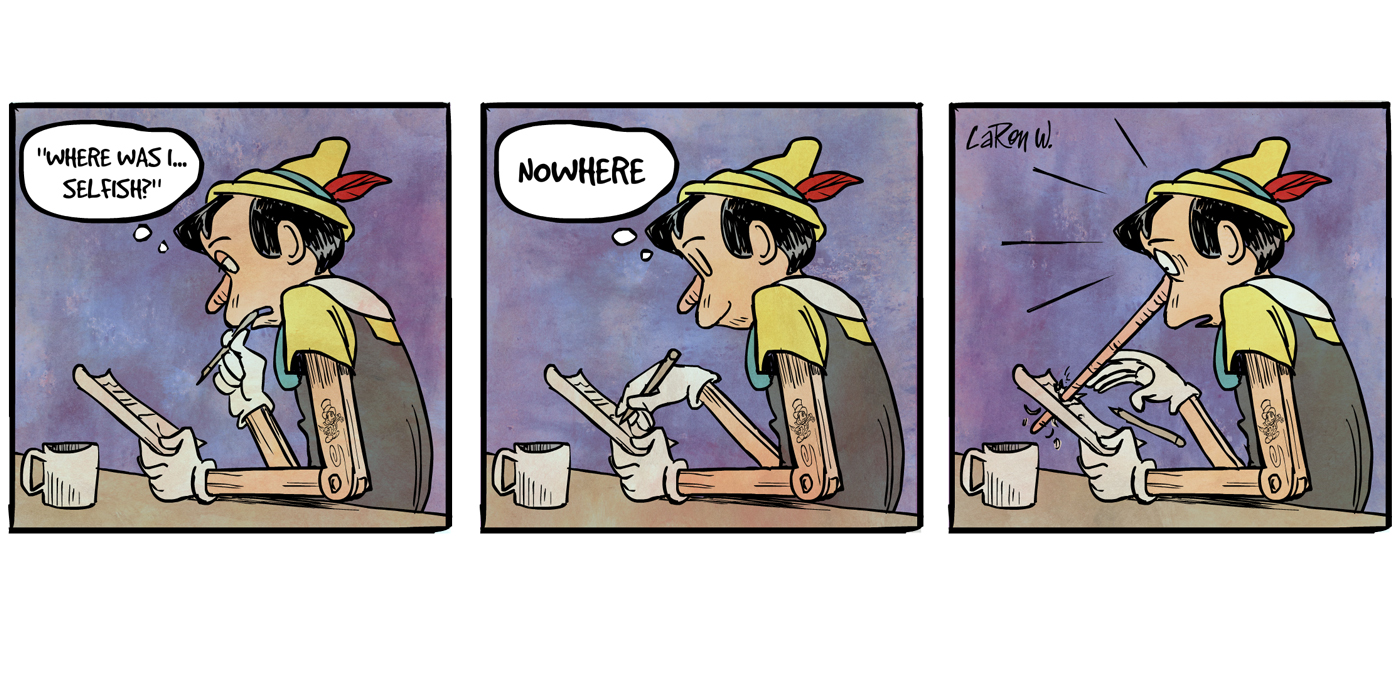
There’s a great talk by Roy K. called “Sponsorship and Group Sobriety.” (If you are new to the Program, Roy K. was the founder of our Fellowship). In his talk, Roy K. shares about the highest purpose of sponsorship. It’s not to keep people coming to the Program, and it’s not to keep people sober, because only a Higher Power can do that. According to Roy, the highest purpose of sponsorship is not even working the Steps, although that is an integral part of it. He says that the highest purpose of sponsorship is introducing other men to the real Connection and bringing them into a way of living where the sponsee can experience having that real Connection.
Finding the real Connection is how I got sober fourteen months ago. This was after eight years of being in the Program with no sobriety. When I first joined SA eight years ago, I planned to come to a meeting once a week. That’s all I needed to get sober.
Then I heard more about the Steps. And after I read the Steps, I was even more determined not to do them. My resentments and my fears had nothing to do with my internet use or masturbation.
Even worse than the Steps, I saw a few people in the Program who turned it into a lifestyle. These men were very extreme in letting the Twelve Steps be a part of their regular life. I was determined not to do that. And so I lived in the problem for the next eight years.
I remember the first time I got a call from one such man who has made the Program a deep part of his life. Today he is my sponsor, and he was the first person in the Program to ever call me. When I saw his name on my caller ID, I thought, “Why the hell is he calling?”
I picked up the phone, and to my surprise he didn’t talk about acting out. He was calling to say hello and see how I was. He encouraged me to practice calling others.
Although I did eventually get more comfortable calling fellows, I spent the next eight years acting out. I only ever had a week or two of sobriety, and it was pretty poor quality sobriety. I worked through a few of the Steps with different sponsors, but never got very far. I thought it was because of sponsors moving away or being lousy sponsors.
One time my previous sponsor totally forgot he was sponsoring me. Then he relapsed, and I asked my Higher Power to guide me to a new sponsor. And that is how I started working with my current sponsor.
But the real reason I didn’t advance in the Steps was because I didn’t take accountability for my own program and do the work. I did eventually take the Steps seriously—and now I’m actively working them. The thing that gave me the willingness to work the Steps was experiencing the real Connection. And I thank my Higher Power for that.
During the past eight years I went through a lot of difficult circumstances. I’m not going to list them because ultimately they have nothing to do with my acting out. I act out because I’m an addict, and even if none of these terrible things had happened, I would still have been a sexaholic and acted out.
I have no control over lust, so several years ago I got rid of my laptop. And after that if I wanted to act out online I had to go to the store and buy a new laptop. I probably bought 15 to 20 laptops because I was desperate to act out. Now that I’m sober, I realize I was trying to find the real Connection on the internet that would ease my anxiety and pain.
I did make amends to the electronics store this year for all the laptops I had bought and then returned when I was feeling foolish after relapsing.
Around the time of my last relapse in 2023, a sober man asked me two important questions:
“Who in the Program loves you?” and “Are you willing to pass on what you’ve been given to the next man?”
To answer the first question—I wasn’t sure if anyone in the Program loved me.
And to answer the second question—well, you cannot transmit something you haven’t got, so I wasn’t going to be passing on anything because I wasn’t sober.
But then I experienced what it meant to be loved in the Program. For each of us, that may look different. For me, it was this man calling to check in on me when he knew I wasn’t doing well. He was willing to pick up when I called, and if he couldn’t pick up then, he called me back. He always called me back. Every single time. He was willing to listen to my foolishness and then share his “experience, strength, and hope” (SA, 201). He didn’t do anything very complicated, but he did it very consistently.
I felt pretty hopeless last year and a few times wanted to kill myself. The Twelve-Step approach is not therapy, and SA is not a suicide hotline. I only share this to communicate a sense of my mindset. And to explain why it was so important for me to experience the consistency of caring that this man gives to me and to others in the Program.
When I called and was struggling, he would encourage me to reach out to someone else in the Program and see how they were doing, especially someone who was new.
This man was not my sponsor. It is wonderful to have a sponsor and to have a connection with that sponsor. I have found that there is also a lot to learn from other sober men in the Program in addition to my sponsor.
In the Big Book chapter, “Dr. Bob’s Nightmare,” he talks about working with others (see AA, 180-181). He enumerates the reasons he works with others: 1) out of a sense of duty, 2) because he enjoys it, 3) to pay forward what was freely given to him, and 4) he regards it as insurance against slipping up in his own sobriety.
Although I sponsor someone today and love him very much, I didn’t wait until I had a sponsee in order to show care to others in the Program. Even without a sponsee, I can pass on what I’ve been given to the next man. And I have experienced what Dr. Bob experienced in working with others.
It really is true that every time I do something to pass on the message to others and care for them, that’s a little bit of insurance against a relapse. Dr. Bob used the “S” word (slip) but I’ve never had a slip—I only have big relapses. So I only ever think in terms of a relapse. For me, each insurance policy is good for no more than 24 hours. To date, I have taken out about 425 insurance policies.
Recently, I found myself with a bad annual review at the office, financial difficulties, and looking for a new place to move.
In the past, these were each on their own great excuses to act out. Altogether at one time, they are too much for me to handle.
But at the same time I was dealing with all of that, I was working the Steps and practicing love and care of others in the Program.
A week after my bad performance review, I got a text from a man in the Program saying that he completed his first full week of real sobriety ever. What an amazing thing. I got to share in the joy of this not because I was this guy’s sponsor but because I was a fellow in the Program who loved and cared for him. And then in turn, I could also go back to my sponsor and share the news about this man having the first sober week of his adult life. And so my sponsor also got to share in this joy because we have a real Connection.
But being a friend to others and having the real Connection requires a lot more than celebrating good things. It means calling this same guy when he’s down. And when he answers the phone and cries and I have nothing smart or comforting to say, I simply stay on the phone with him and listen to his tears. (And when I’ve had to cry, others have done the same thing for me.)
I want more of these moments, both the celebrations and the times when there’s deep sadness and I have nothing to offer except listening quietly. When I’m willing to follow the principles laid out in the Big Book, I can have a spiritual experience together with other men.
One of my favorite speaker recordings is from a member in New Jersey who got sober in 2010. He had an experience similar to me of being in the Program a long time and never having sobriety. Even some oldtimers didn’t want to talk to him because he was such a mess. But he eventually found the real Connection. And in the recording, he had two things to say about working with others that I’ve always remembered:
First, he talked about Tradition Five, which says: “Each group has but one primary purpose—to carry its message to the sexaholic who still suffers.” The speaker says I can’t go door to door in my neighborhood asking, “Hi, is there a sexaholic living here who is still sick?” Enough men who are still suffering are already at meetings. So if I want to carry the message of the Program and help someone, I can start with those at a meeting I already go to.
The other thing he pointed out is that carrying the message is going to look different for each of us. Our “experience, strength, and hope” won’t be identical. The important thing he said here is: “Whether you’re a tough love guy or a love love guy, make sure your love is more important than your tough.”
Today I can say that what keeps me sober is, first, doing the Steps. And second, it’s knowing the answer to these two questions: “Who in the Program loves me?” and “Am I willing to pass on what I’ve been given to the next man?”
John H., California, USA






